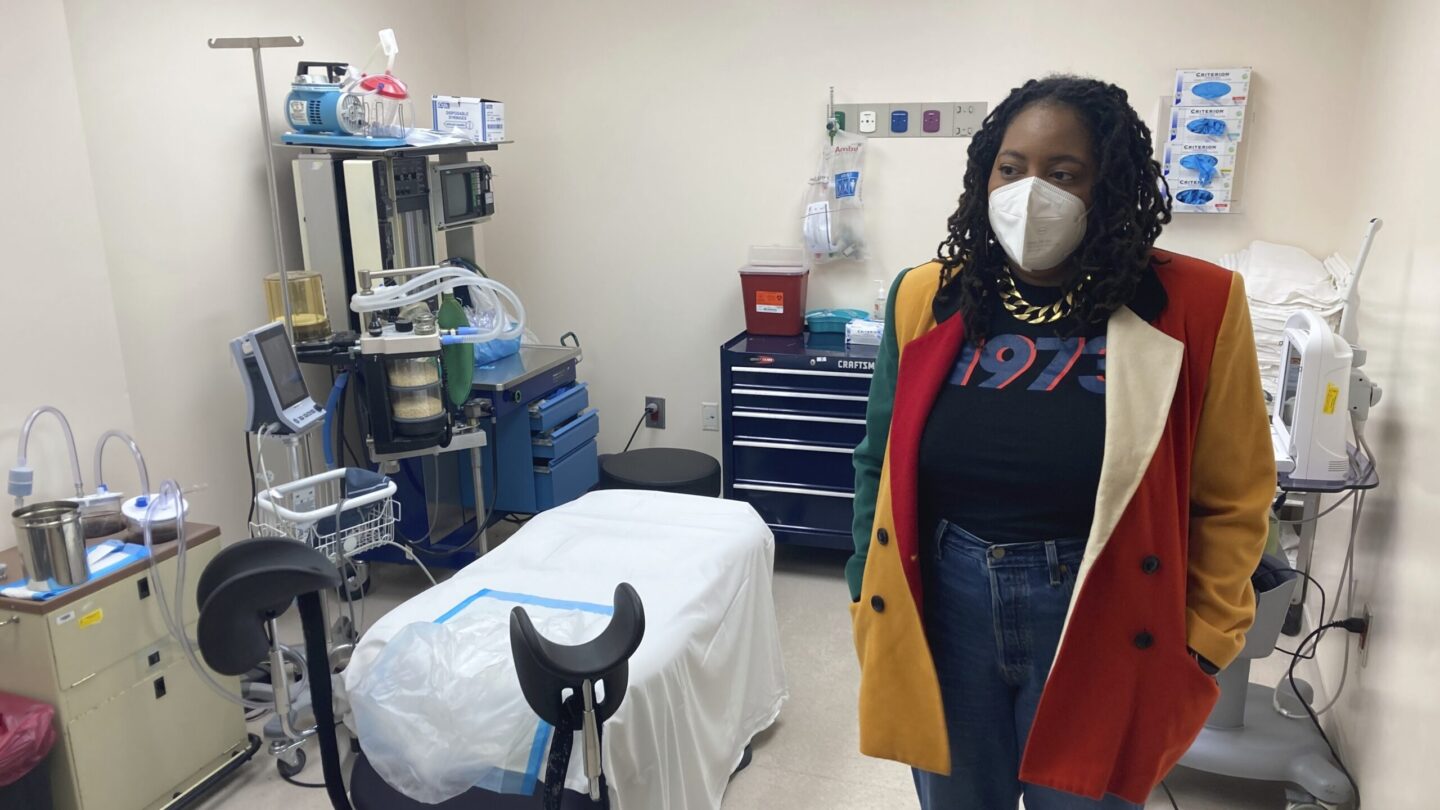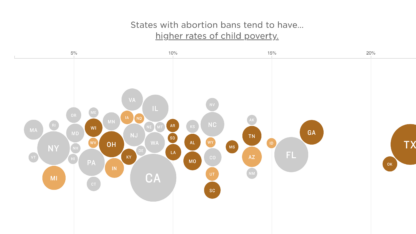The latest with implementation of Georgia's six-week abortion restrictions

Georgia state agencies and law enforcement officials are wrestling with the implementation of Georgia’s abortion law House Bill 481, which bans nearly all abortions after around six weeks of pregnancy. It also grants fetuses so-called “personhood” rights.
The law took effect a few weeks ago, not long after the United States Supreme Court overturned Roe v. Wade abortion-access guarantees.
In this conversation, WABE Health Reporter Jess Mador and WABE Politics Reporter Rahul Bali bring us the latest on the law.
Rahul Bali: Let’s start with providers. I want to hear, Jess, what you’re hearing on the ground.
Jess Mador: There’s a lot of uncertainty about how this law will be enforced, what the abortion law means for OB-GYNs’ ability to treat patients who may experience pregnancy complications because, for example, miscarriage treatment is the same as the procedures that are used for an elective abortion. So there’s a lot of fear that Georgia’s abortion law could open physicians up to prosecution if treatments used for miscarriage are criminalized. Dr. Tiffany Hailstorks is an OB-GYN in Atlanta. She says fear of prosecution could also keep patients experiencing a miscarriage from seeking emergency care in the first place.
Dr. Tiffany Hailstorks: “Medication abortion treatment and miscarriage management is the exact same thing. And so people feeling worried or maybe stigmatized or thought that they are, in fact, having an abortion when in fact, they are having a miscarriage. And so I think it’s going to be detrimental.”
Jess Mador: There are a lot of questions about how this law will be implemented.
Rahul Bali: That’s where your local district attorney comes in, because if a charge is filed, the district attorney’s going to have to decide whether I’m going to take that to trial. In Georgia, you have 50 district attorneys. You’re going to have 50 different opinions. One of the early opinions we heard was from DeKalb County District Attorney Sherry Boston.
DA Sherry Boston: “What I want the citizens of DeKalb to know is that they don’t have to fear that prosecution as they’re struggling to make these very difficult personal life choices.”
Jess Mador: Boston is a Democrat. You’ve also been speaking to some other district attorneys around the state, right?
Rahul Bali: Yeah, Republican DAs. I had a conversation with Jeff Langley. He’s a district attorney in north Georgia, handles four counties up there. And this is what he had to say when I asked him, what happens up here?
DA Jeff Langley: “As with any criminal matter, we would look at the facts available, the evidence available, the strength of our case. We have to look at all those factors and then make a decision whether in an individual case, the law should apply and a prosecution should take place. But in general, it’s my job and it’s my duty to enforce the law that the state legislature passes, the governor signs, and the courts approve. So, to do otherwise would disrespect democracy and create chaos in the criminal justice system.”
Rahul Bali: Talking to other members of the prosecuting community, they’re still dealing with so many cases. Some of them are dealing with COVID-19 backlogs. The way they look at it is, does this in the end become just a battle of medical experts and is this a use of those resources? But now there’s a state challenge to Georgia’s new abortion law.
Jess Mador: Right. A coalition of advocates represented by the ACLU filed a new lawsuit in state court. And so that case is just getting underway. We had a first hearing in Fulton County earlier this month. The ACLU was asking the judge to block enforcement of the law, but Judge Robert McBurney denied their request, allowing the abortion law to remain in effect. Meanwhile, we have state agencies wrestling with implementation of the abortion law. Rahul, what have you learned so far about how the law is being implemented?
Rahul Bali: So state agencies have been trying to very quickly figure out how to implement HB 481. And for example, the Department of Revenue putting together this $3,000 tax exemption for someone who’s pregnant — what is written in the law as a natural person — what do you do with HOV lanes? You know, because you’re going from one person to two people and how are you going to implement that? So, you know, you’ve got agencies really trying to figure out how to implement this and trying to do it on a much faster pace than they normally do.








